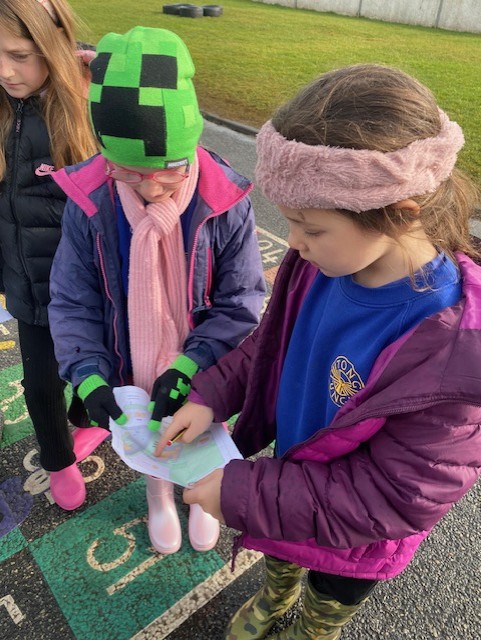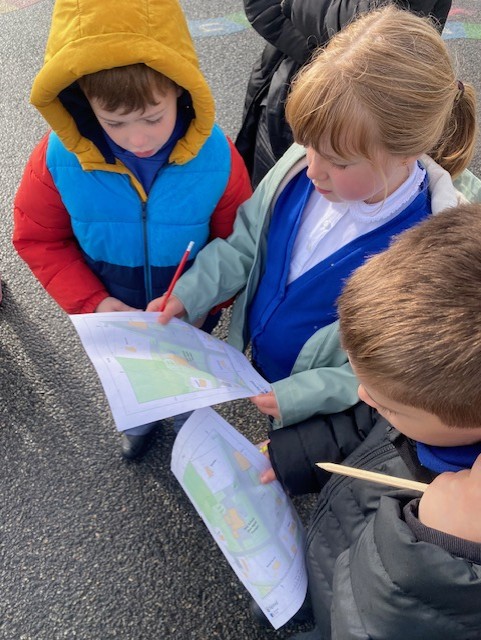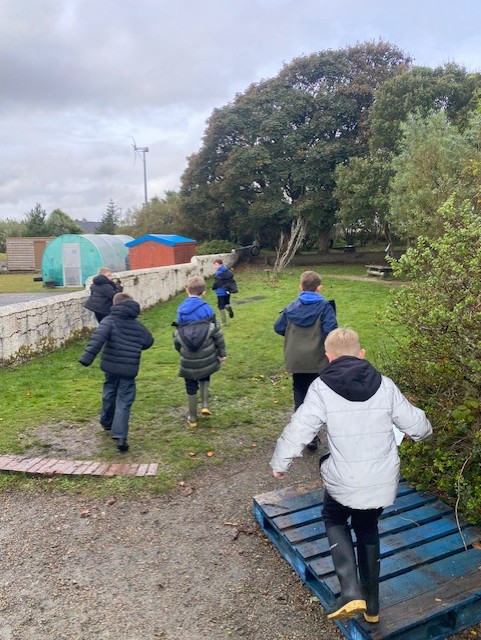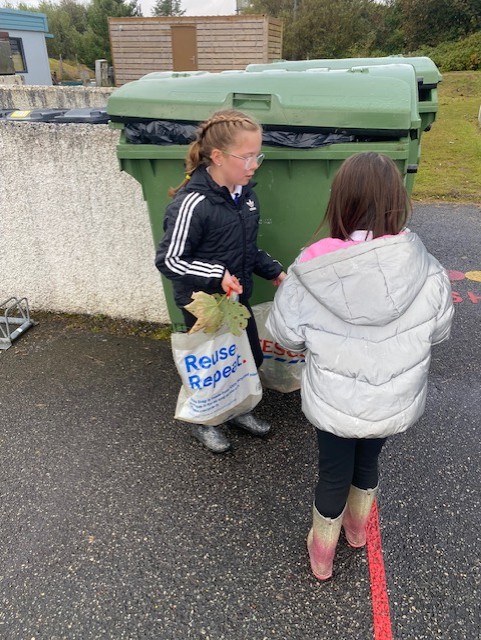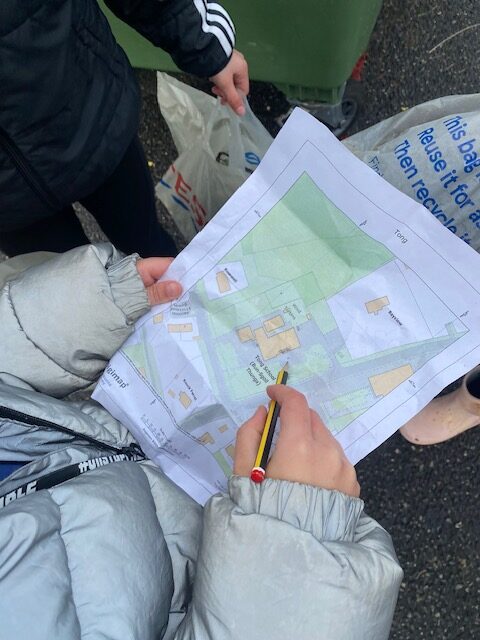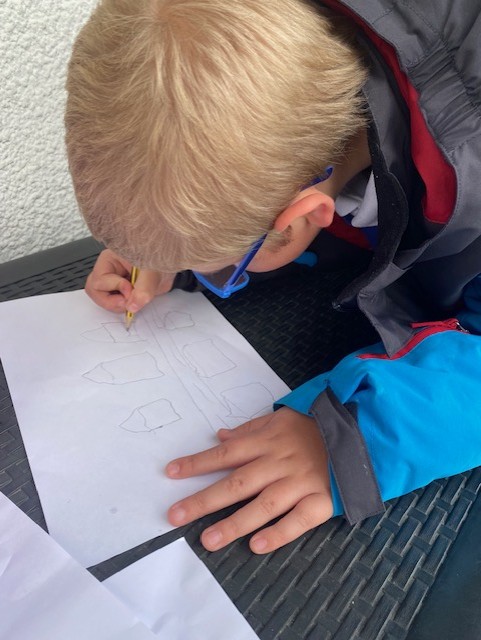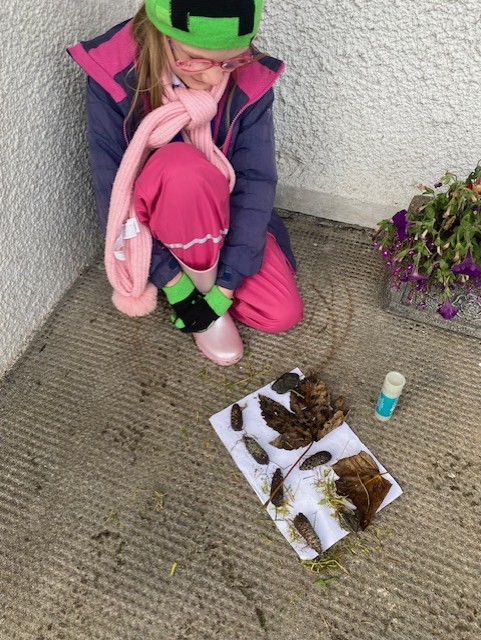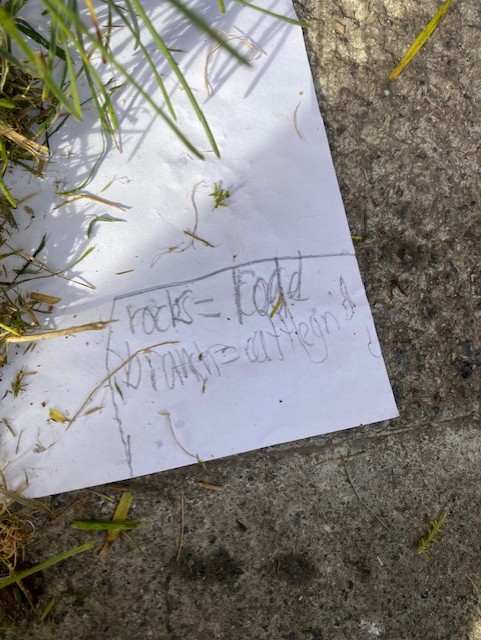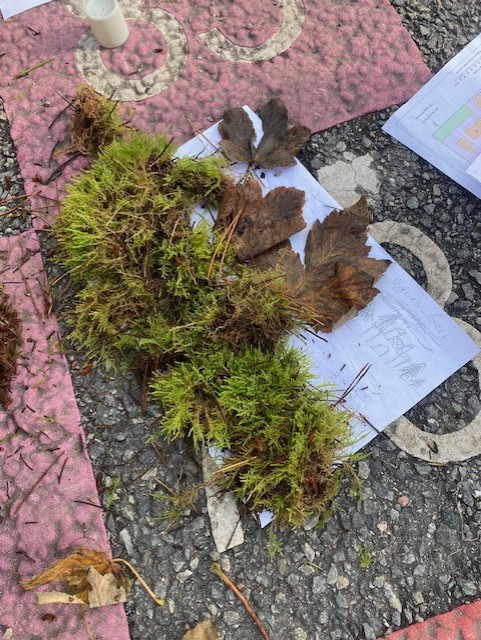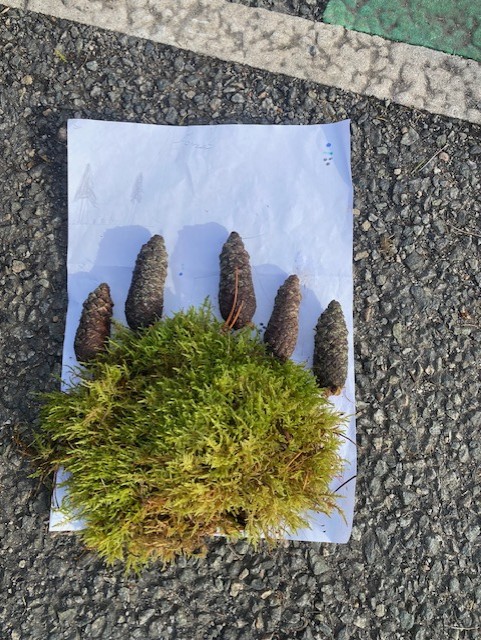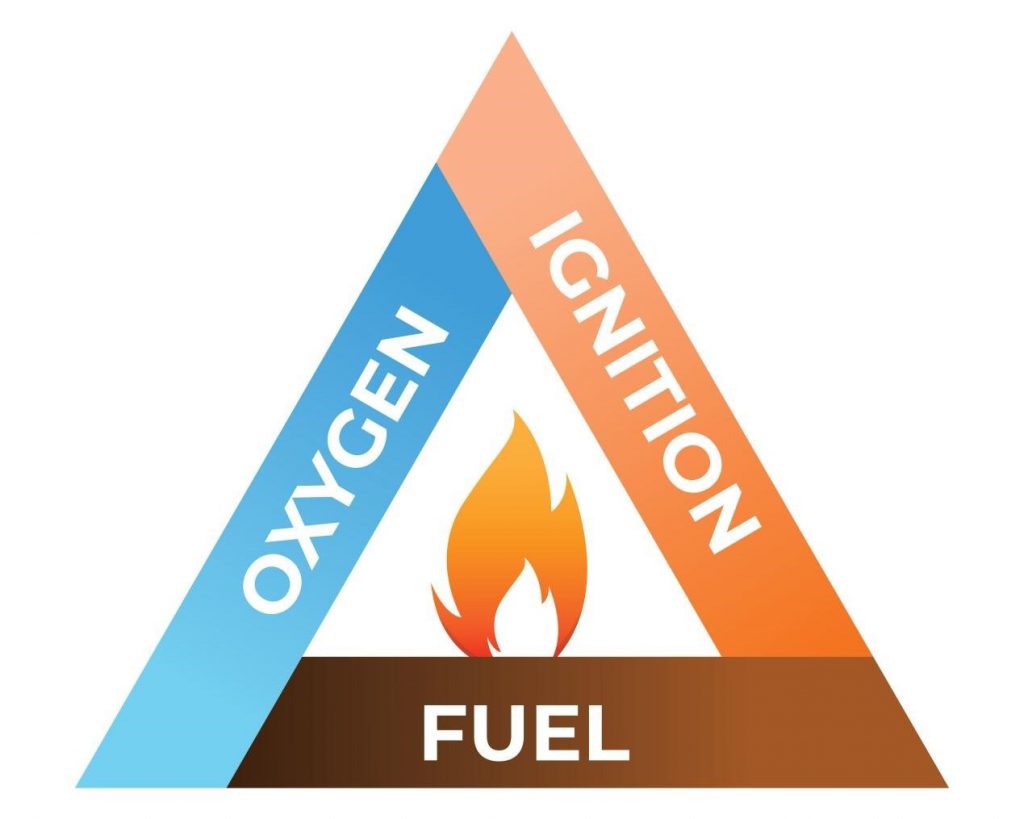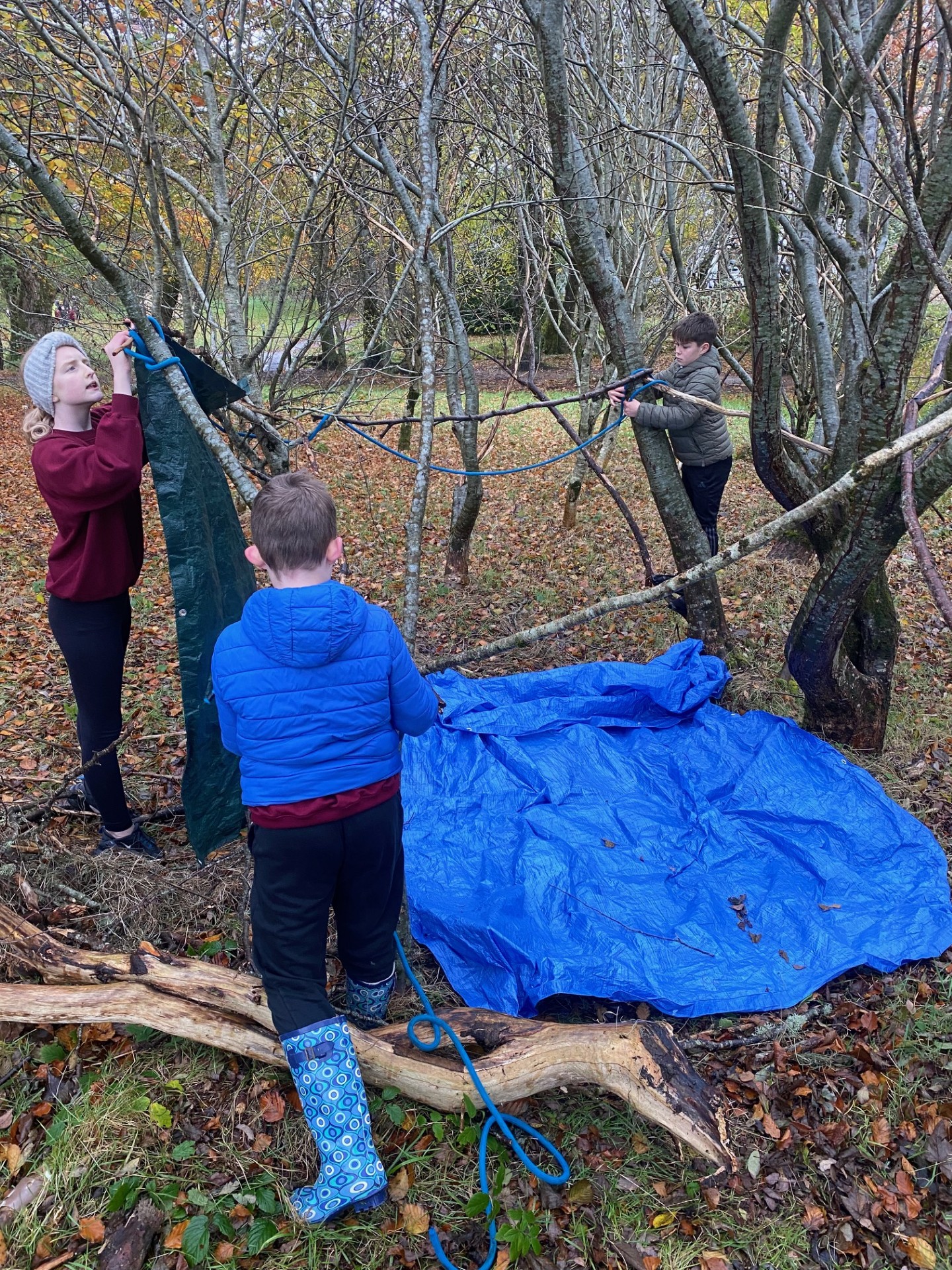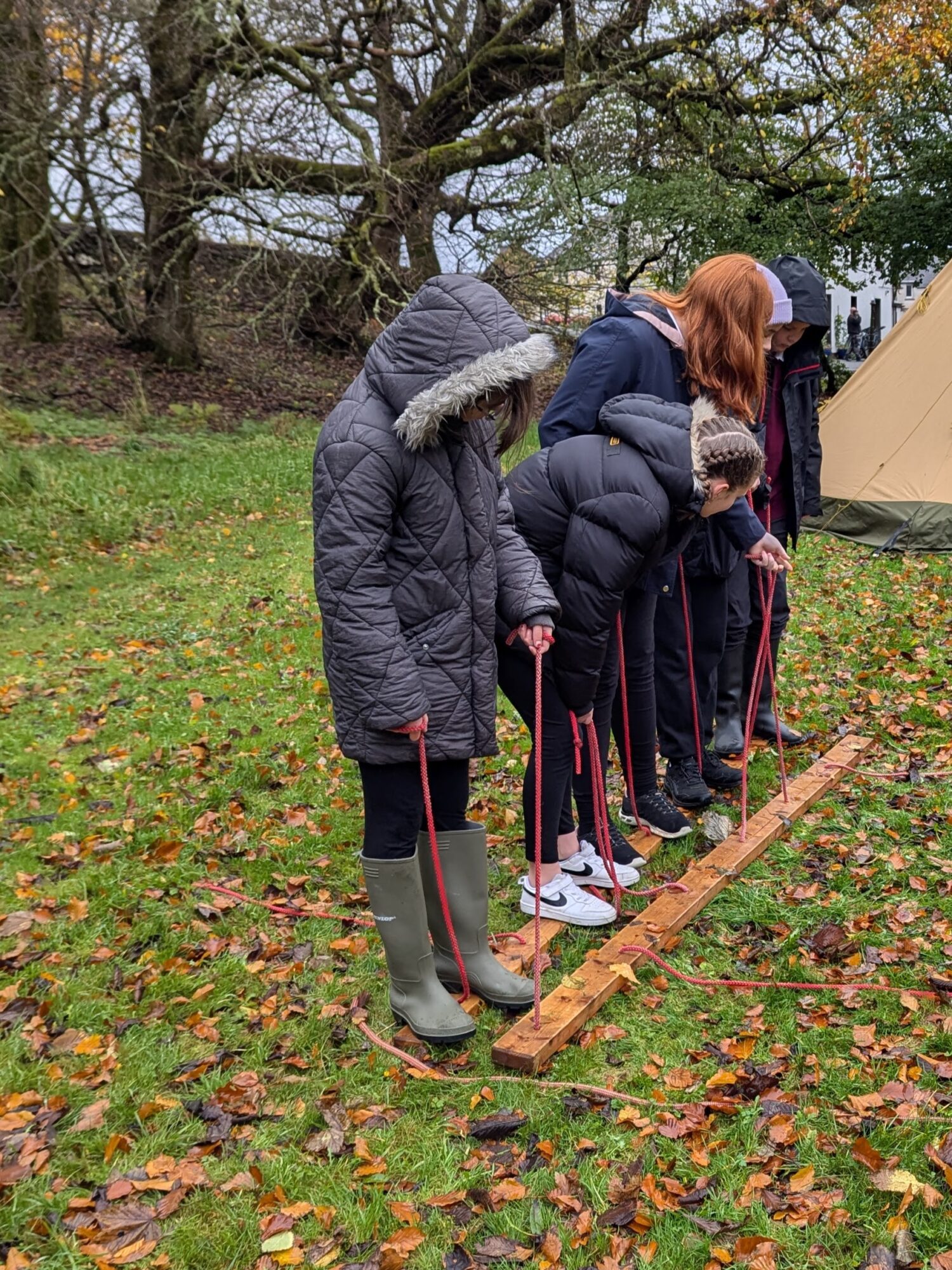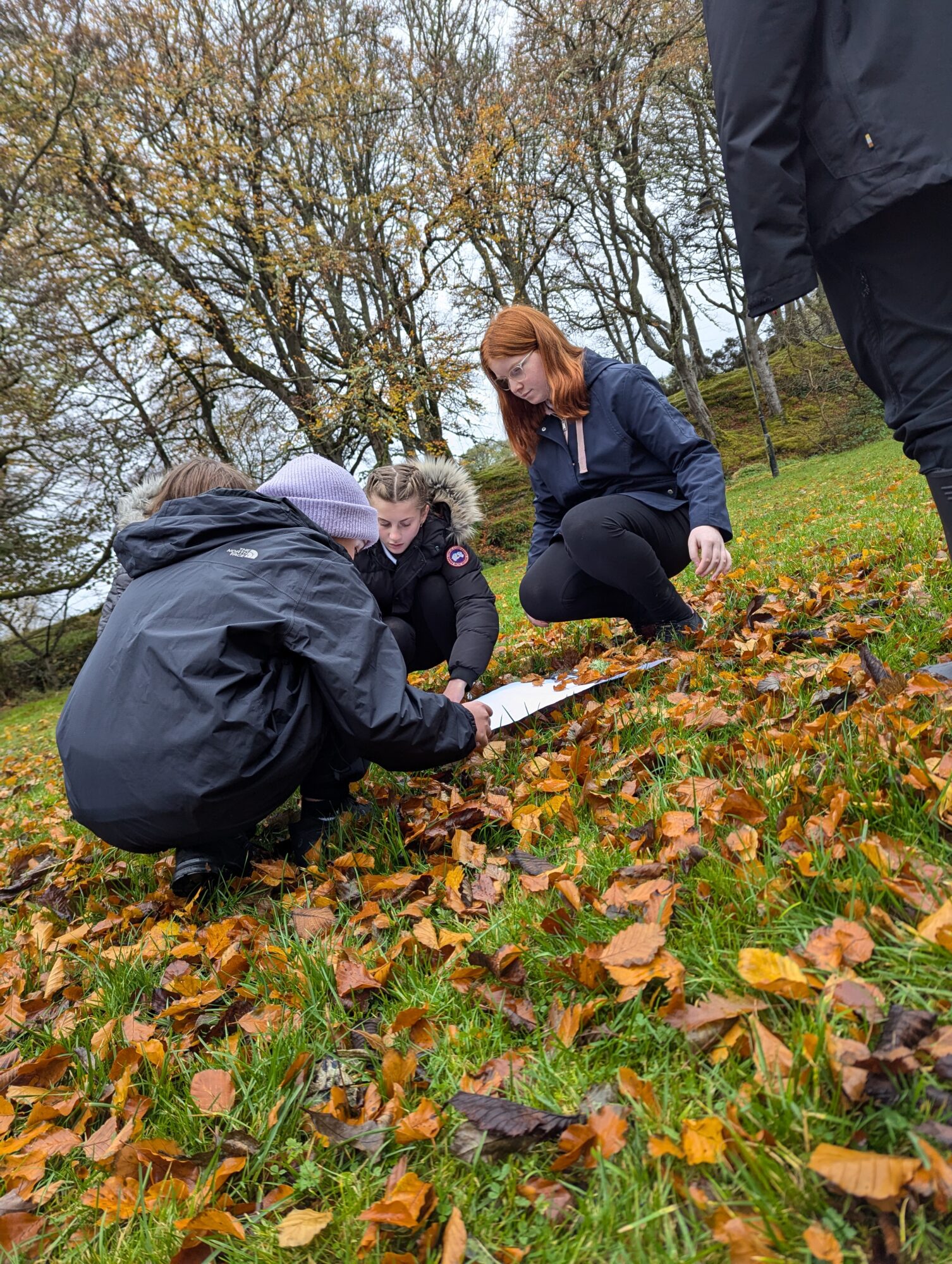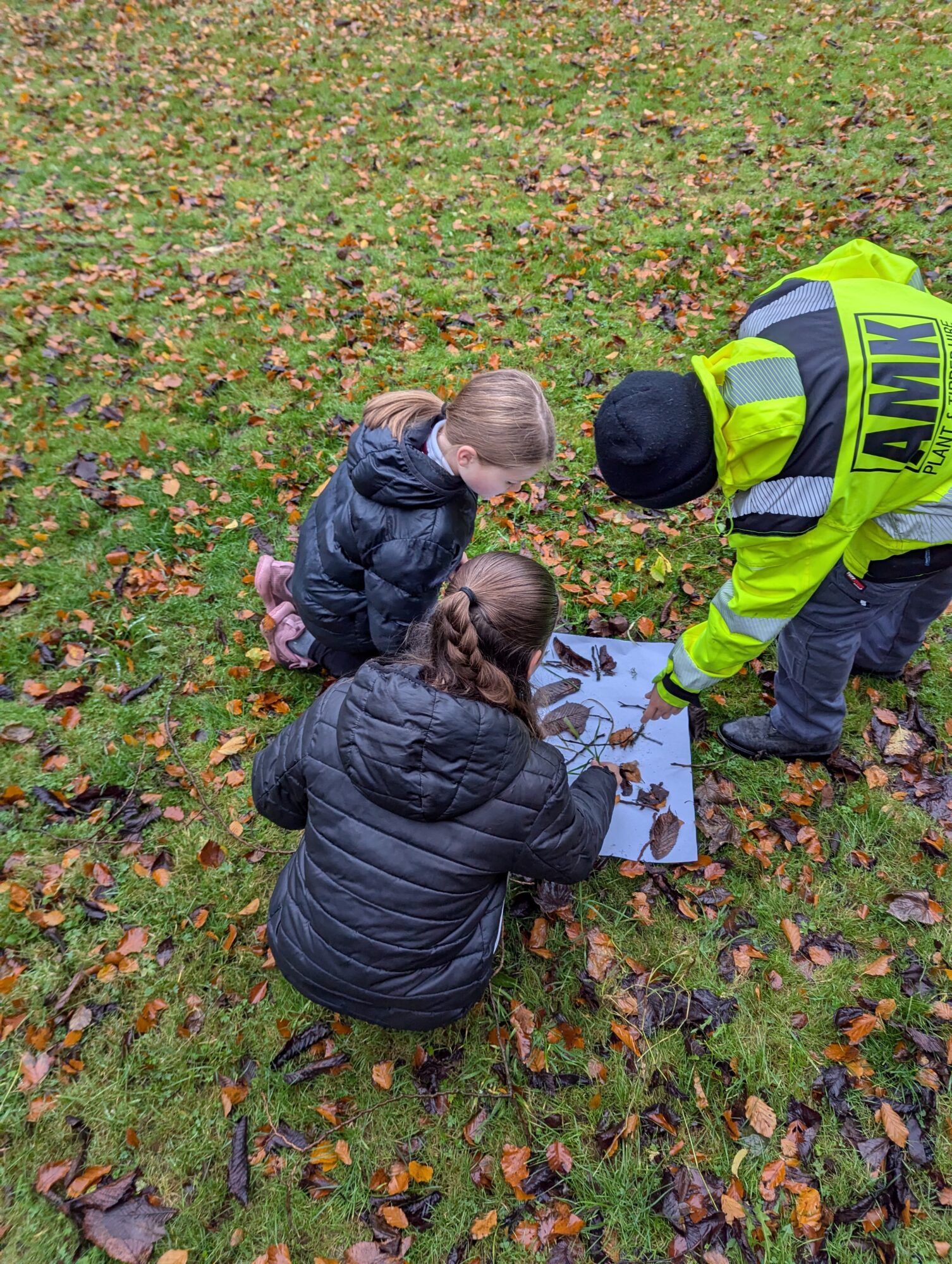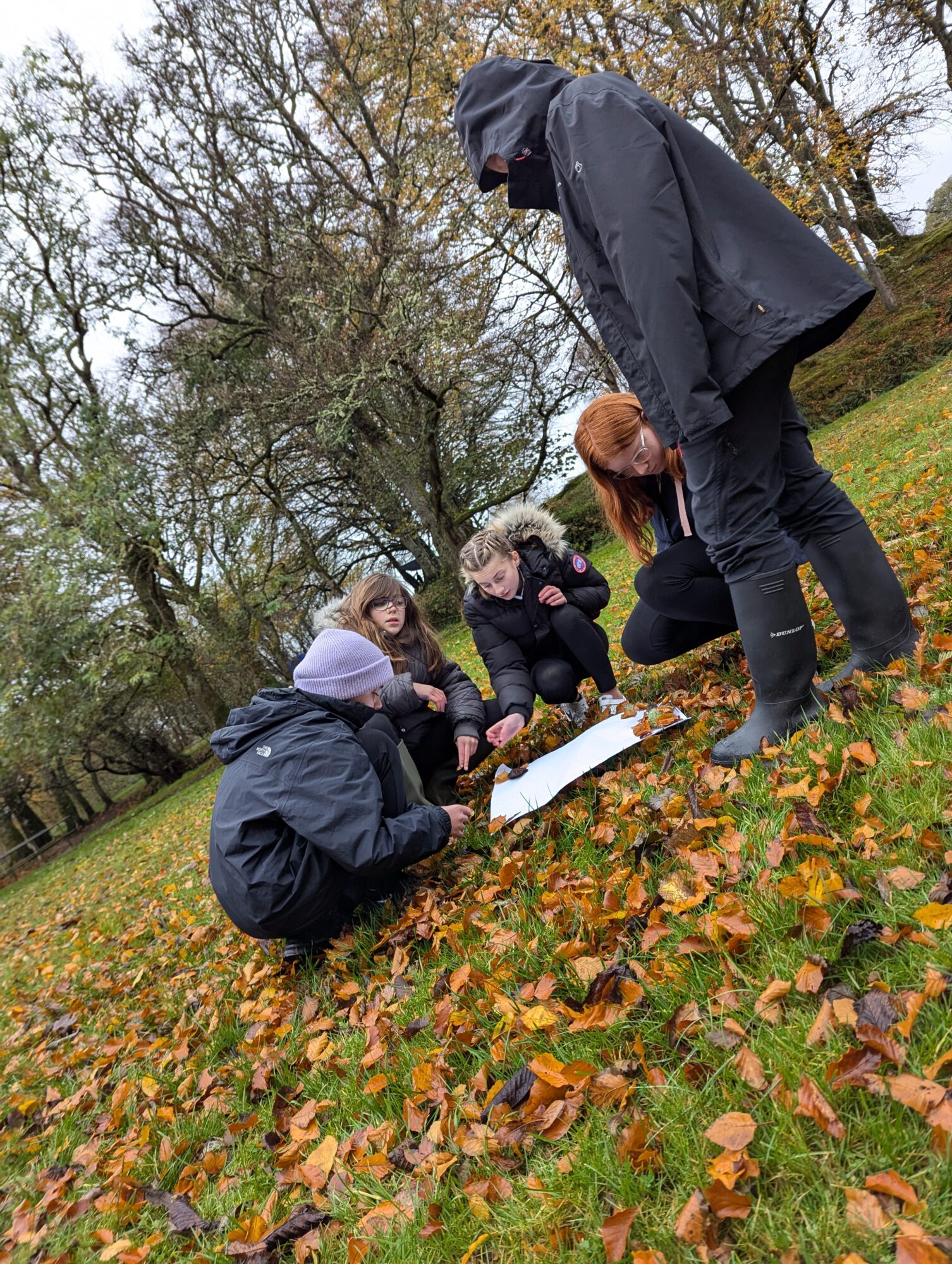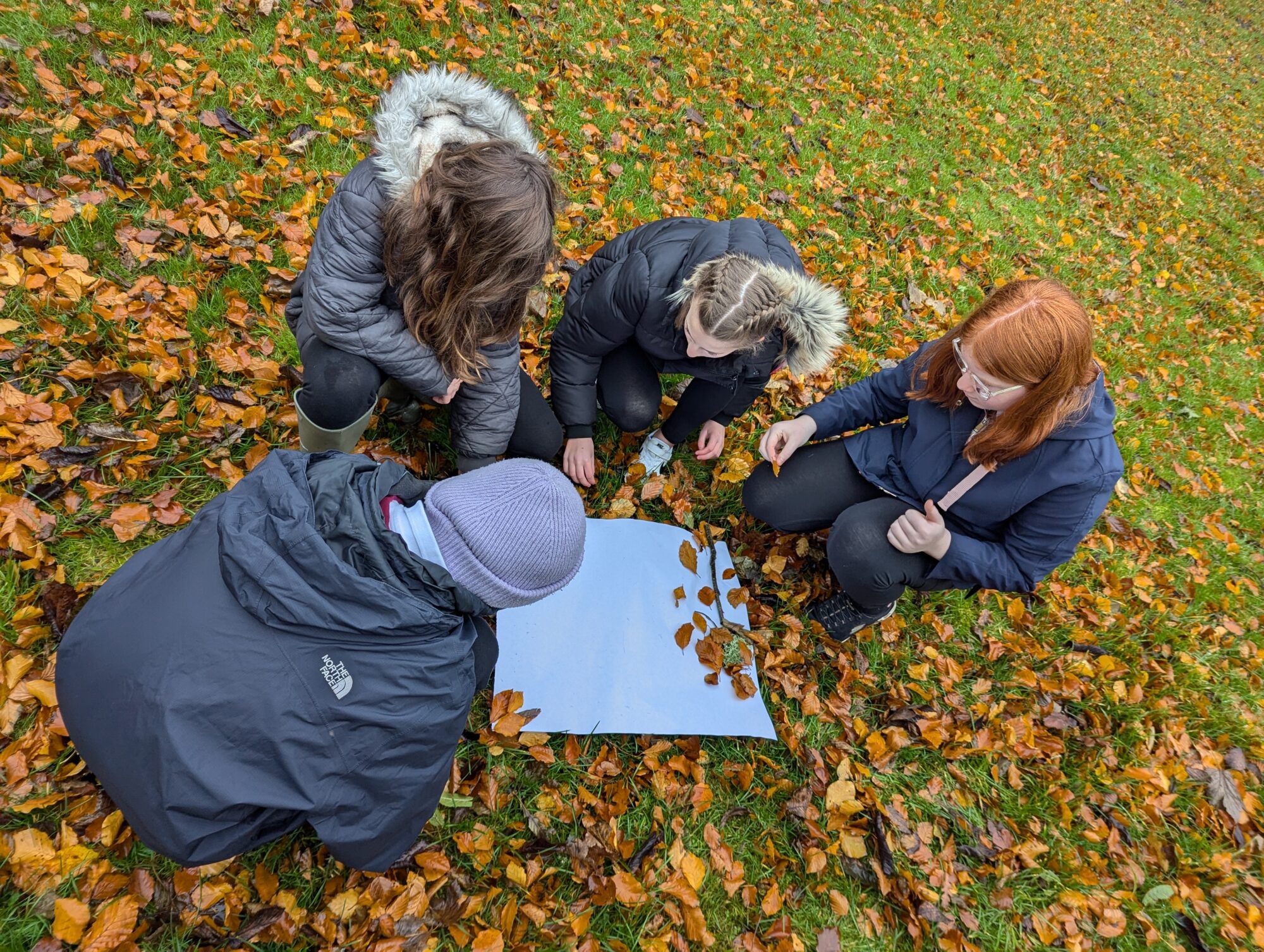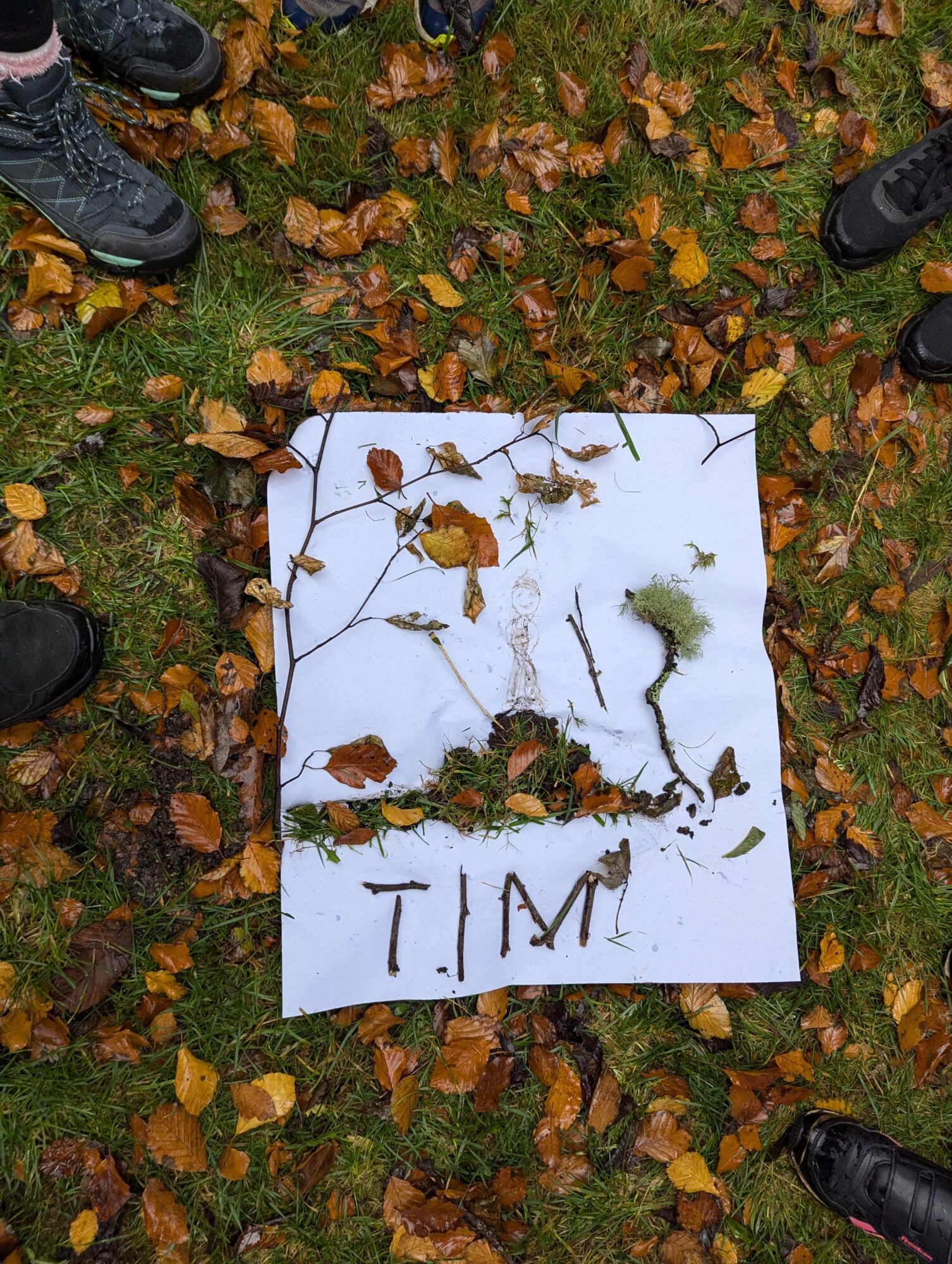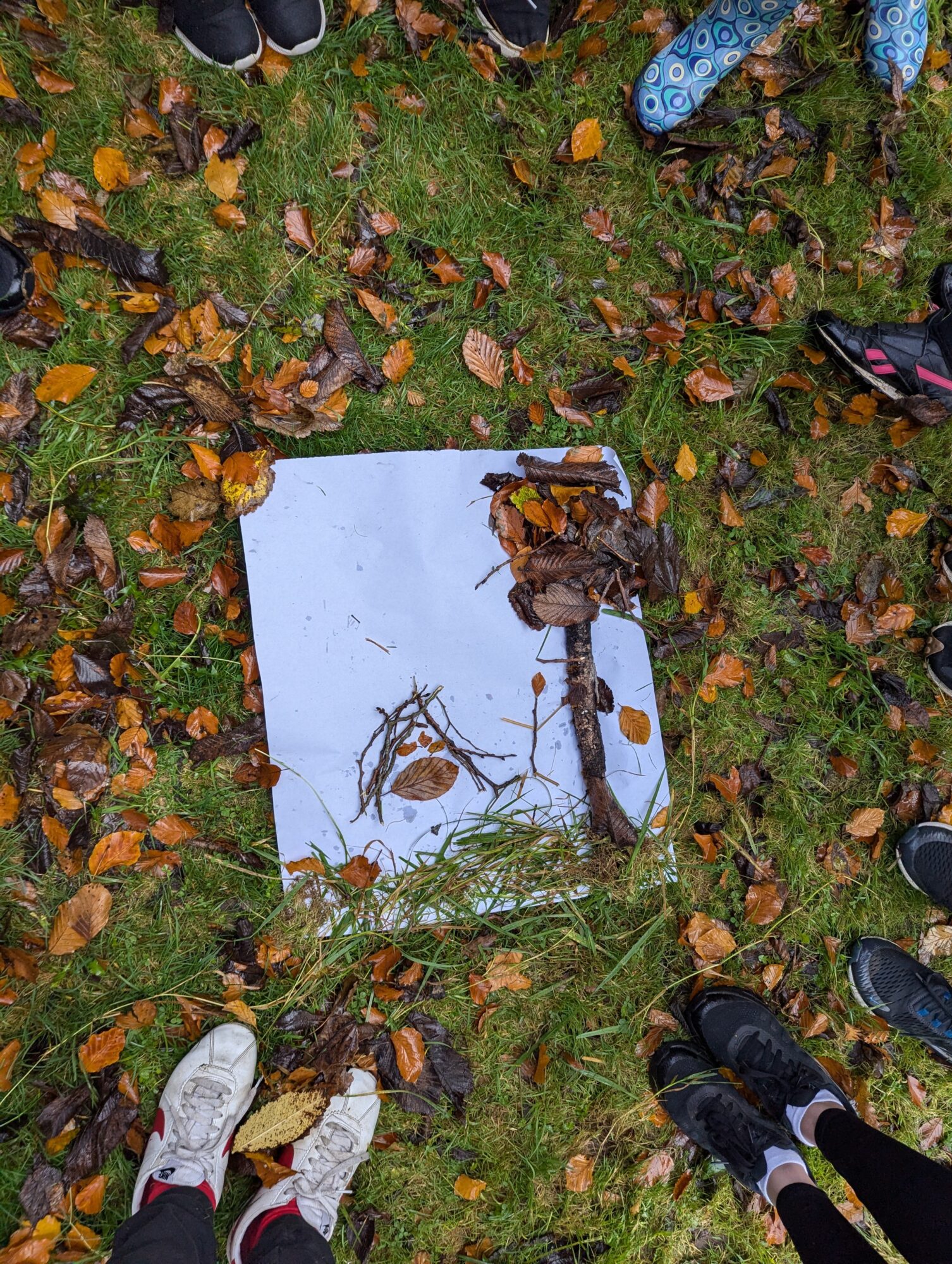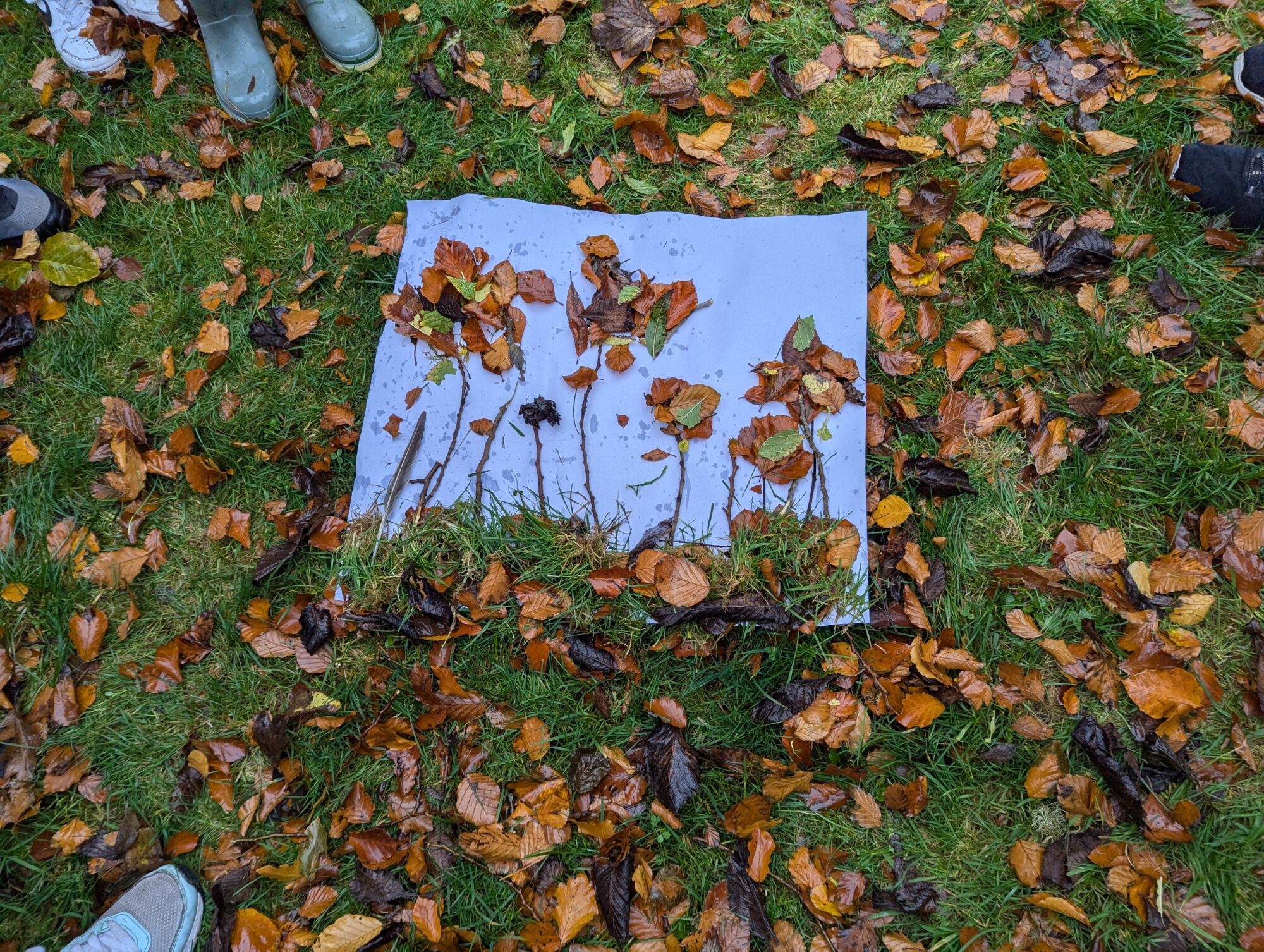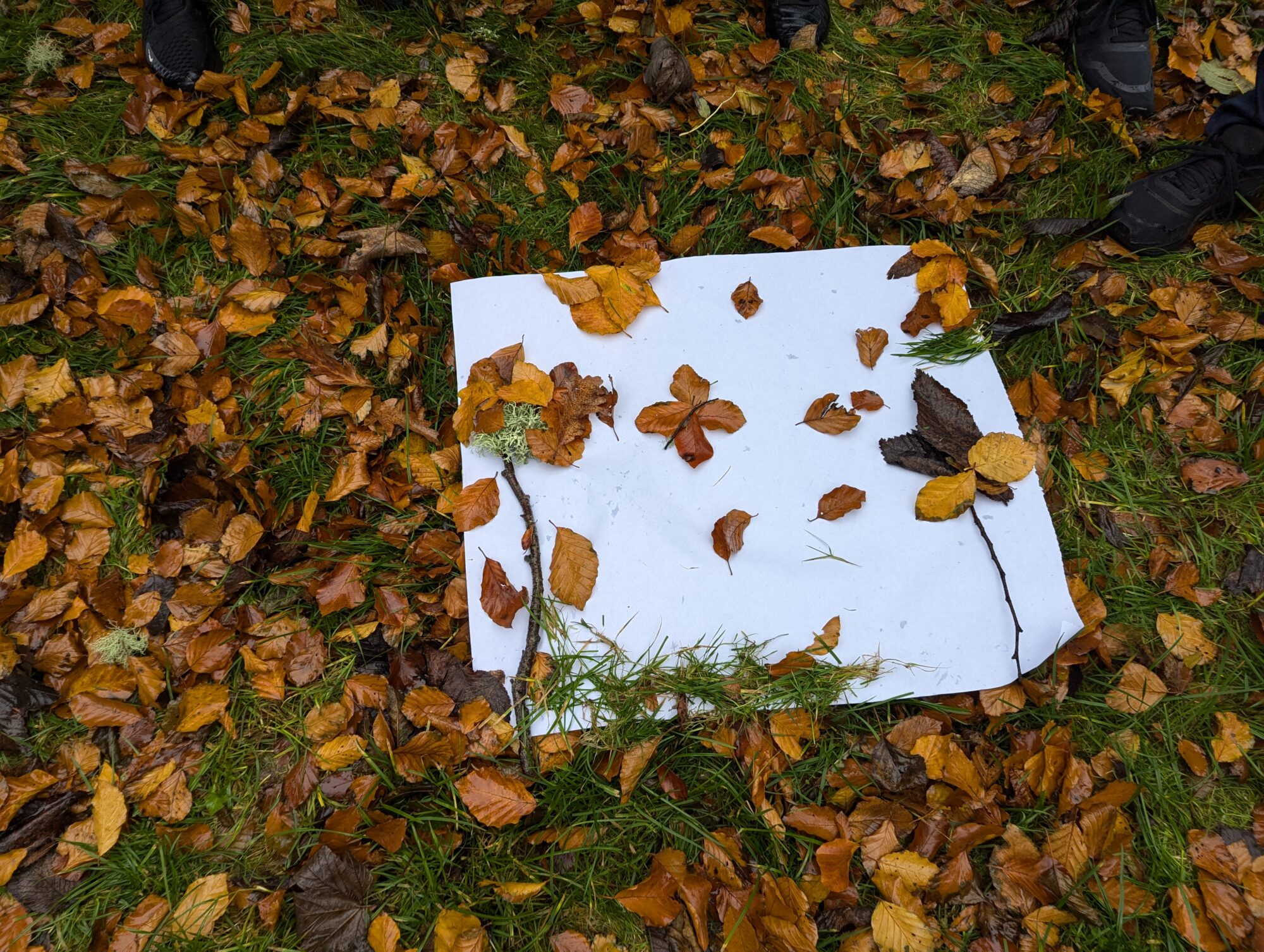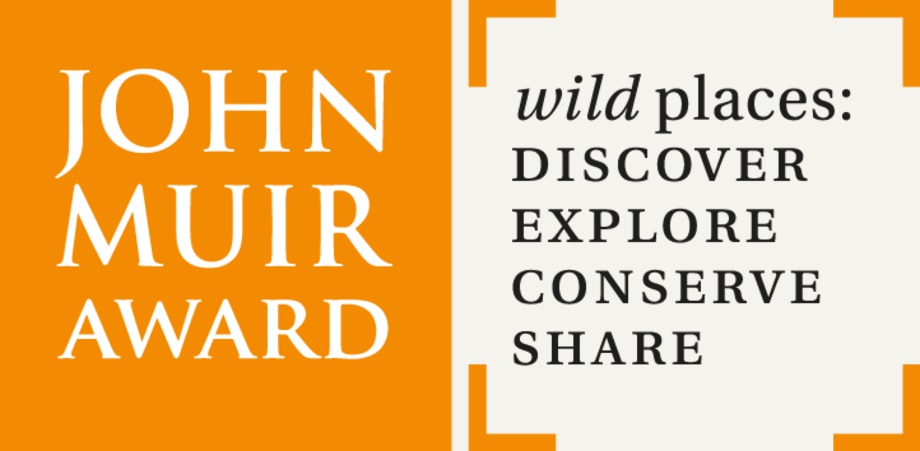On Friday 1st November 2024, Tim and Fraser worked with the young people from Stornoway Primary P7. The activities were based in the Castle Grounds. The focus was teamwork.
Fraser’s activity was to design a shelter in the woods. The young people in groups of six to eight were tasked to build a shelter they could spend the night in. There was discussion about if this was an fun prospect, for some young people they were not definitely not excited by it.
The group were able to choose different sized tarpaulins, ropes, and to use natural resources. They were given thirty minutes to selected a suitable site in the woods, design their shelter, collect resources, and erect their home from home. All the teams were able to construct a shelter, some with a little more success than others.
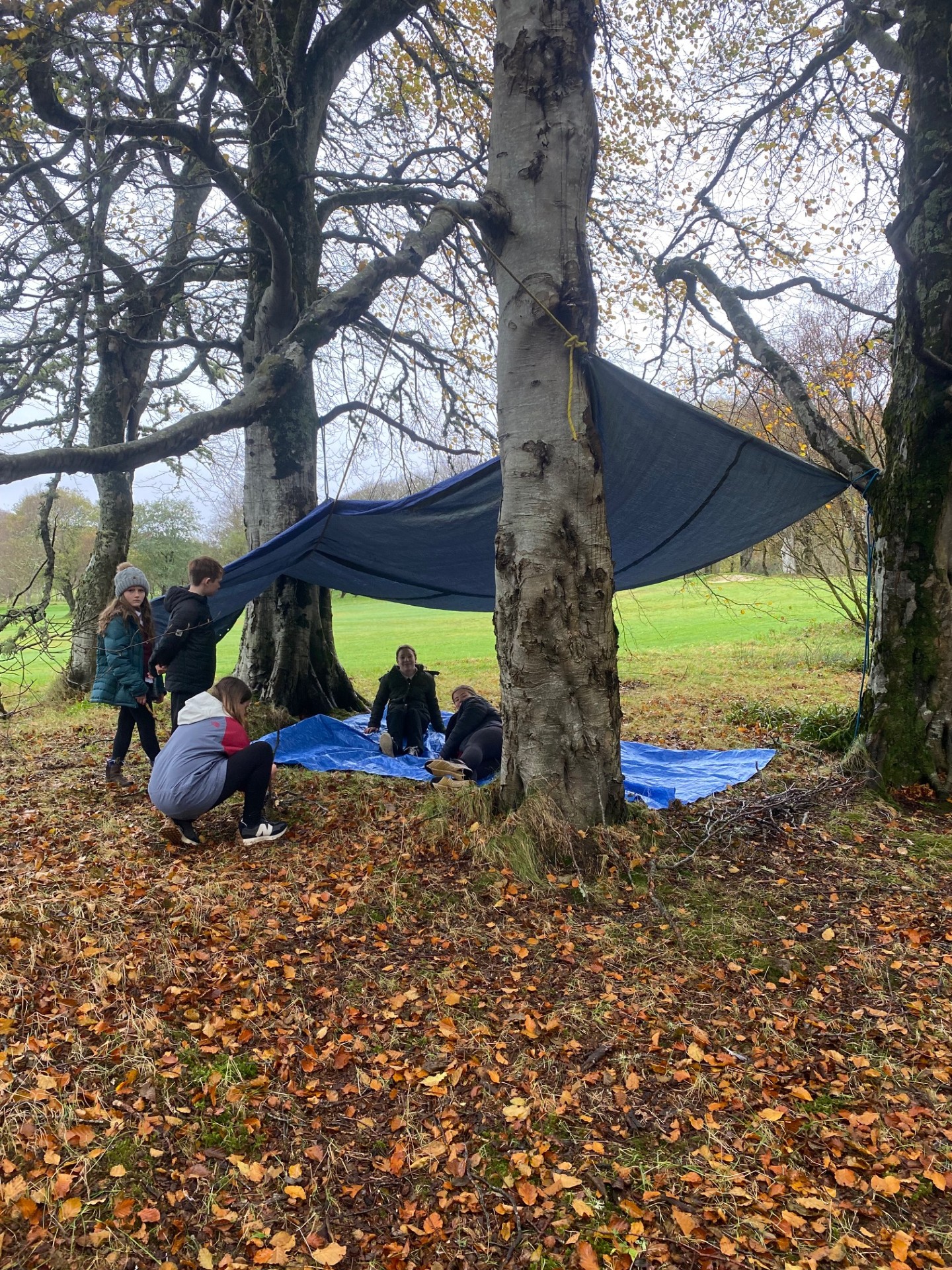
After the thirty minutes, a team ‘spokesperson’ evaluated their shelter to the other teams. They talked about why their team selected the area, what resources they used and why, and what they would do differently next time.
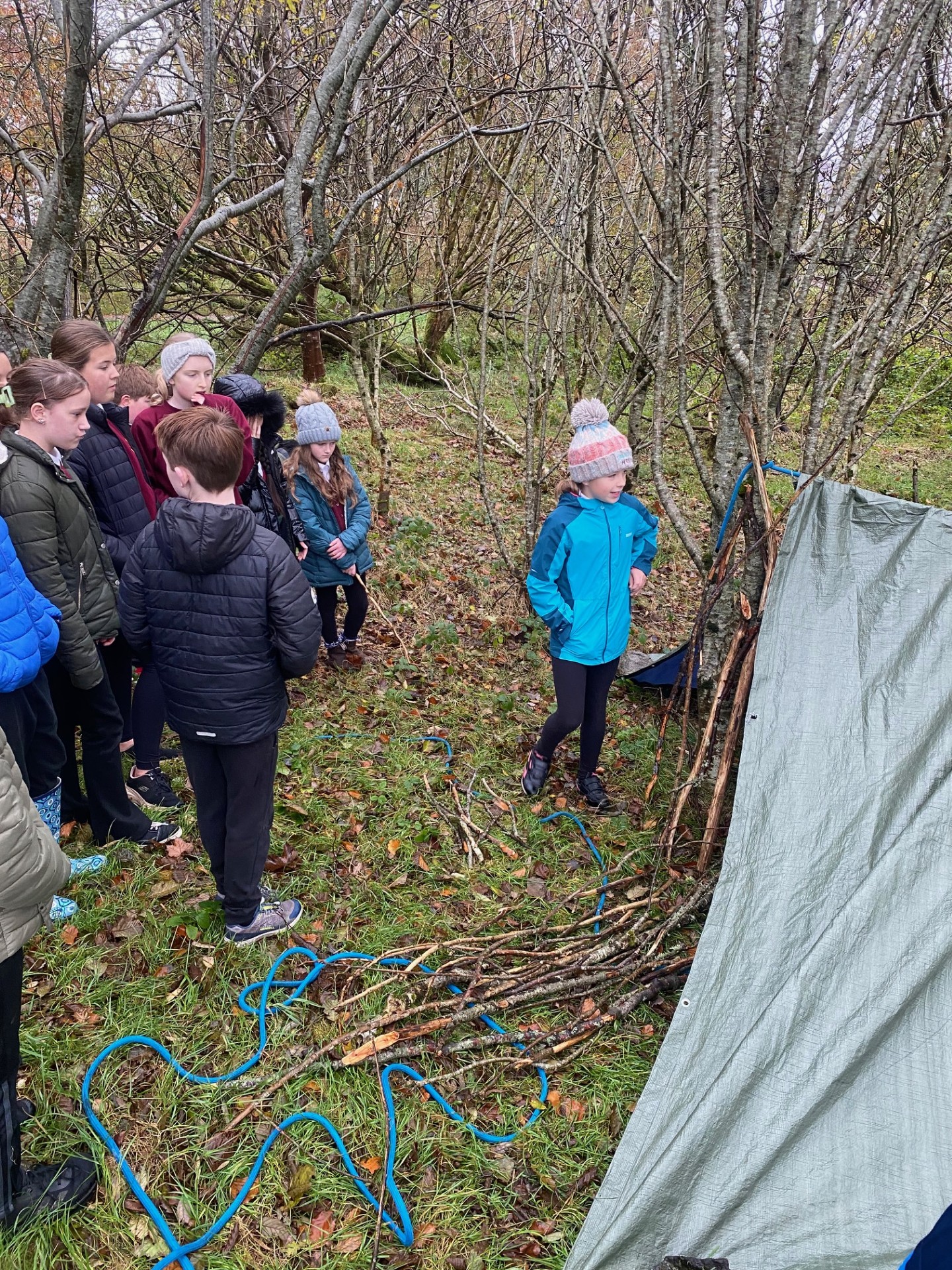
The activity could be replicated in any school grounds and the equipment can be borrowed from the Outdoor Learning Team.
On possibility is the activity could be used to create opportunity to discuss the challenges of refugees and how people could become refugees. This progression has been used by one school with a lesson in a shelter leading to a discussion on how this made them feel.
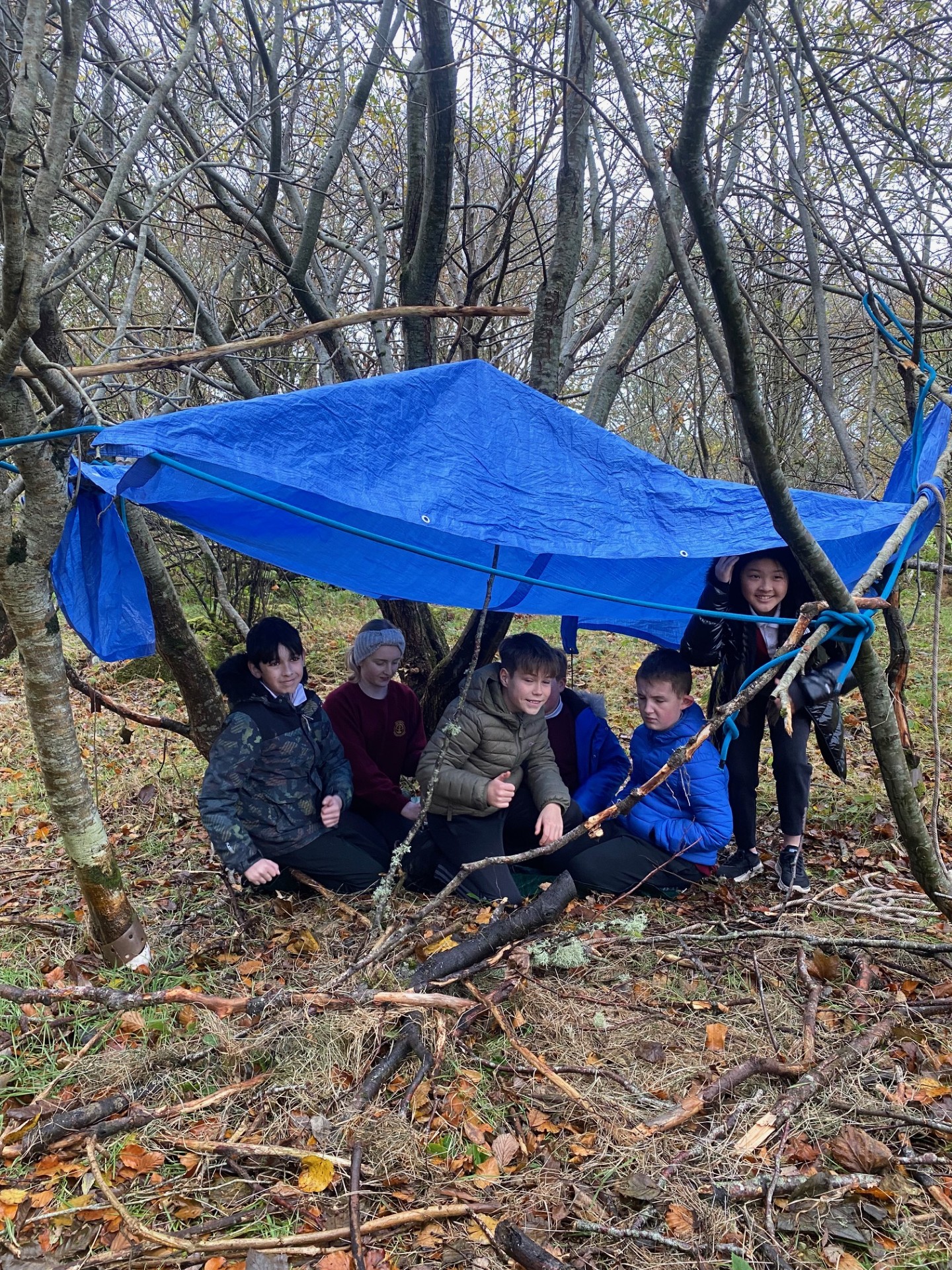
The first part of Tim’s activities was for sub-groups to use a set of ‘skis’. These are planks with ropes which the young people use to cross an area where they are not allowed to touch the ground with anything other than the skis. There were varying degrees of success leading to discussion of what successful team work might look like and different method of achieving success.
The equipment for these types of exercises can be borrowed from the Outdoor Team with briefing instructions and support if you would like it.
The second part of Tim’s activity was each sub-group was given a large sheet of paper on the ground and they had to create an art work, to create window, or a picture with a deliberately vague brief to encourage creativity and discussion. The pictures were beautiful.
The resources needed for this were a sheet of paper and the young people’s imagination. They co-created transient art which in this case was connected to the environment and in some cases grew out of the environment. The activity could be used to create opportunities for discussions around sustainability.
